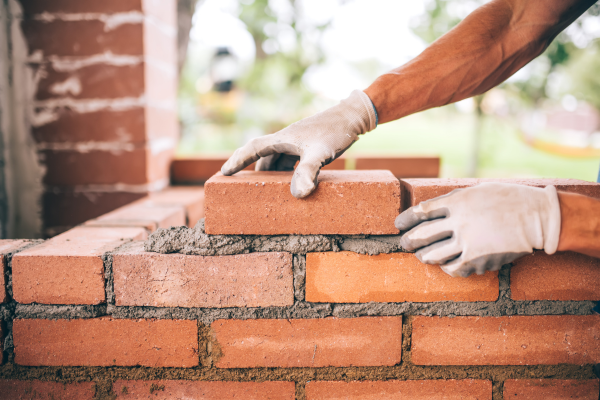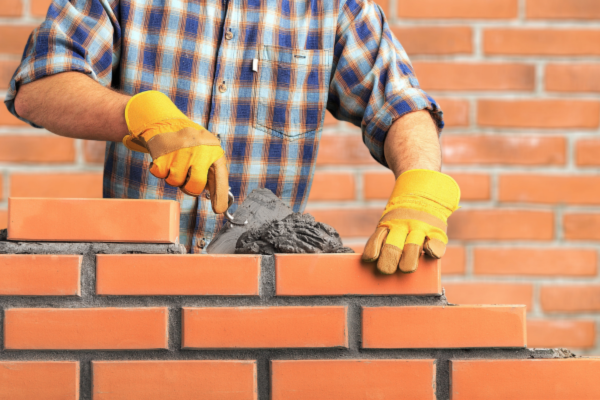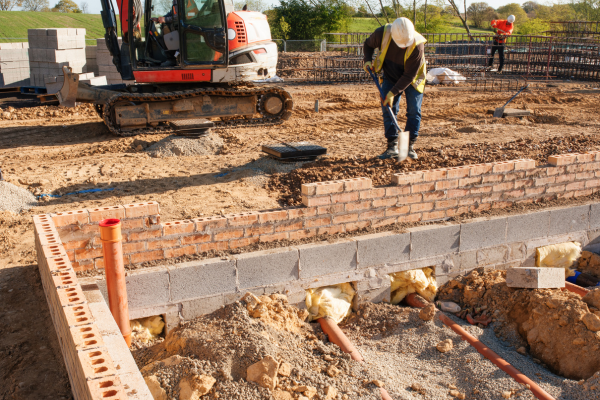Is CSCS Card Bricklayer for Beginners?
A CSCS Card Bricklayer is a huge, crucial milestone for anyone working as a bricklayer. It’s a card that serves as proof of competence, and safety awareness, on construction sites. But is the card for beginners- and how do you go about acquiring it? We’ll be answering both these questions, as well as several more, in today’s blog.

What Does the CSCS Card Bricklayer Actually Mean?
The CSCS Card for Bricklayers is a nationally recognised statement of a professional’s skill and competence. The most common card for a skilled bricklayer is the Blue Skilled Worker Card.
Holding this card signifies that the individual has not only demonstrated a basic level of health and safety awareness, but has also completed a formal, work-based qualification to prove their skills in the trade. The card tells an employer or site manager that the bricklayer has met a set of rigorous industry standards. This provides a clear, objective measure of competence that helps to reduce risks, improve productivity, and professionalise the construction workforce. In an industry that relies heavily on a mobile workforce and subcontractors, this standardised proof of skill is an invaluable asset.
So, no- the Blue Card is not available to beginners. Typically you’d need to have completed an NVQ in Bricklaying to be eligible.
How to Qualify for the CSCS Card Bricklayer
Qualifying for a CSCS Card as a bricklayer requires a two-step process that combines theoretical knowledge and practical competence. First, every applicant must successfully pass the CITB Health, Safety & Environment (HS&E) Test. This is a mandatory, multiple-choice test that assesses a person’s knowledge of safety law and best practices on a construction site. It’s a fundamental requirement for all CSCS cards.
Second, and most importantly, an aspiring cardholder must provide proof of a relevant construction qualification. For a bricklayer, this qualification is typically the NVQ Level 2 in Trowel Occupations (Bricklaying). This is the non-negotiable component that proves a person has the skills to perform their job to a professional standard.
Why the Bricklaying NVQ is Essential for Site Access
The NVQ is the key that unlocks site access for a skilled bricklayer. The CSCS scheme is built on the principle that the easiest way to improve safety and standards is to ensure that everyone on-site is competent. For a skilled trade like bricklaying, the NVQ is the formal qualification that proves this competence. Without it, a bricklayer cannot get the Blue Skilled Worker Card and may be relegated to a temporary card that is not renewable. While some sites may allow entry with a lower-level card, the vast majority of principal contractors and major house builders now require all skilled workers to hold a valid card that is backed by an NVQ. The NVQ is the core requirement that transforms a person from an experienced worker, into a formally qualified professional.
Health and Safety as a Key Requirement
The CITB Health, Safety & Environment (HS&E) Test is a vital and separate requirement from the NVQ. It’s a multiple-choice test that covers a wide range of safety topics, from general safety practices and working at height to manual handling and environmental protection. The test is designed to ensure that everyone on-site has a foundational knowledge of safety law and best practices. It’s a key part of an employer’s duty of care and a vital tool for reducing accidents on-site. Even if you’re a master bricklayer, without a valid pass from the HS&E test, you can’t get your CSCS card.
How the CSCS Card Bricklayer Improves Job Prospects
In today’s construction market, holding a CSCS Card is often a mandatory requirement. Many of the UK’s largest contractors and most prestigious construction sites will not allow workers on-site without a valid CSCS card. For a bricklayer, this means that having the card directly opens up a huge number of job opportunities. It allows a professional to work on larger, more complex, and often higher-paying projects that are inaccessible to those without the card. It’s a key credential that demonstrates a commitment to professional standards and a proactive approach to safety, which are qualities highly valued by employers.
What to Expect from the NVQ Assessment Process
The NVQ assessment process is designed to be as non-intrusive as possible while still being a rigorous test of competence. The process typically involves an assessor visiting the candidate on-site to observe them at work. The assessor will also review a portfolio of evidence that the candidate has compiled. This can include photographs and videos of completed work, witness testimonies from supervisors or colleagues, and project documents like risk assessments and method statements.

Choosing the Right NVQ to Become a CSCS Card Bricklayer
For a bricklayer, the correct qualification to be eligible for acquiring a CSCS card is the NVQ Level 2 in Trowel Occupations. There are various providers that offer this qualification, and it’s essential to choose a reputable and accredited one. You should look for a provider that is accredited by a recognised awarding body such as NOCN, City & Guilds, or ProQual. It’s also worth considering a provider that offers the assessment in a flexible, on-site format, which is convenient for a working professional. The NVQ is the key to proving your competence, so it’s important to choose the right qualification and provider to ensure your hard work is formally recognised.
Barriers Beginners Face When Applying for the CSCS Card Bricklayer
A beginner faces several key barriers when trying to get a CSCS Card Bricklayer. The most significant is the lack of prior experience. Since the NVQ is a work-based assessment, a beginner simply does not have the on-site portfolio of evidence required to complete the qualification. They also face challenges in finding an on-site job where they can be assessed, as many employers are reluctant to hire uncertified workers. The cost and time commitment of the NVQ and the HS&E test are also significant hurdles for a person just starting out. These barriers reinforce the idea that the CSCS Card isn’t a starting point, but rather a professional milestone to be earned.
Support and Funding for Your Bricklaying NVQ
While the cost of the NVQ can be a barrier, there are several options for support and funding. Many employers are willing to cover the cost of the NVQ for their staff, as it’s a crucial investment in their competence and safety. For those just starting out, an apprenticeship is an excellent option. Apprenticeships often include the NVQ and the CITB HS&E test as part of the programme, providing a structured and funded pathway to a professional qualification and a CSCS card. The CITB also offers grants to employers to help with the cost of training, which makes it a cost-effective choice for businesses.
Timeframe for Becoming a Qualified CSCS Card Bricklayer
The timeframe for becoming a qualified CSCS Card Bricklayer is not a matter of a few weeks. The NVQ component, in particular, requires a significant time commitment. While the assessment process can be completed at a person’s own pace, it can take several months, depending on how quickly a candidate can gather the required evidence. This timeframe highlights that the CSCS card is not a quick fix; it’s a long-term professional goal that requires dedication, hard work, and a significant investment of time and effort. The card is a reward for a person’s commitment to their trade.
With CST Training, you can complete your NVQ in a quicker time frame. If you’re willing to put in the time and effort, it’s possible to be qualified within four to eight weeks.
Why Employers Value NVQs in Construction
Employers value NVQs in construction because they provide a verifiable, objective record of a professional’s competence. This is a huge benefit for a business, as it reduces risk, improves a company’s reputation, and ensures a high standard of work. An employer knows that a person with an NVQ has been assessed against a national standard and can be trusted to perform their job safely and effectively. This makes NVQ-qualified workers a valuable asset who can lead to increased productivity, fewer accidents, and a stronger company reputation. The NVQ is a win-win for both the employee, and the employer.
Conclusion: Is CSCS Card Bricklayer for Beginners?
The card is not for beginners. It’s a credential that a professional earns after they have demonstrated a high level of competence and a commitment to safety. The card is a direct result of successfully completing a Level 2 NVQ in Bricklaying, and passing the CITB Health, Safety & Environment Test.
While it may not be a starting point, it’s a crucial milestone for any aspiring or practicing bricklayer. It’s a passport to a professional career, a mark of competence, and a testament to a person’s hard work and dedication to their craft. It’s a journey that takes time and effort, but for a professional who is serious about their career, it’s an essential one.

If you still have any questions regarding the NVQ, then do not hesitate to get in touch.
Phone – 020 3488 4472





